What we eat has changed the planet. Across the globe forests have been devastated to make space to rear cattle and to grow crops to feed livestock, while our oceans become barren as they are trawled and overfished. Food production is not only the greatest driver of wildlife loss, it contributes to climate change: about a quarter of global greenhouse gas emissions are associated with food.
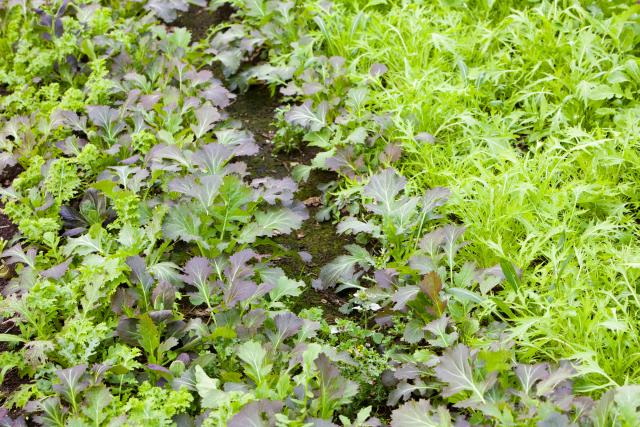
1. Eat more plants
Farming animals for meat and dairy requires space and huge amounts of water and feed. The livestock industry alone generates nearly 15% of all man made greenhouse gas emissions. With global meat consumption soaring 500% between 1992 and 2016, it is clear we need to rebalance our diets by prioritising plants and moderating our intake of animal products.
2. Eat more variety
75% of the world’s food supply comes from just 12 plants and five animal species. Greater diversity in our diets is essential as the lack of variety in agriculture is both bad for nature and a threat to food security. With Knorr we have identified the Future 50 Foods that can help reduce the environmental impact of our food system.
3. Make responsible seafood choices
Roughly 94% of fish stocks are overfished (34%) or maximally sustainably fished (60%) and aquaculture has its own issues. But when responsibly produced, seafood can benefit people, nature and climate. Try a diversity of species from well managed sources, eat lower in the food chain and opt for lower carbon emission seafood. Check out our seafood top tips for more information!
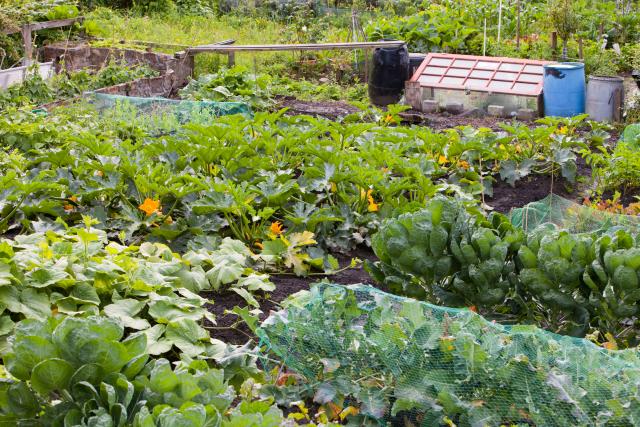
4. Cut the waste
Food waste is a big problem. 30% of the food produced is wasted, with serious repercussions for the environment. In fact, if food waste was a country it would be the 3rd largest emitter of greenhouse gasses after China and the USA. Reducing waste in your household is simple: freeze anything you can’t eat while it’s fresh and, where possible, buy loose produce so you can select the exact amount that you need.
5. Grow your own food
What’s better than fresh, home-grown produce straight from the garden? As well as being healthy and delicious, it is free from the carbon footprint of shop-bought food.
6. Look for products containing RSPO certified palm oil
Unsustainable palm oil is responsible for large-scale deforestation, putting wildlife like orangutans and tigers under threat, as well as contributing to greenhouse gas emissions and increasing the risk of climate change. But rejecting palm oil all together could have unintended consequences as alternatives can be even worse for the environment, with some needing up to nine times as much land to produce. When you’re shopping look for products containing RSPO certified sustainable palm oil.
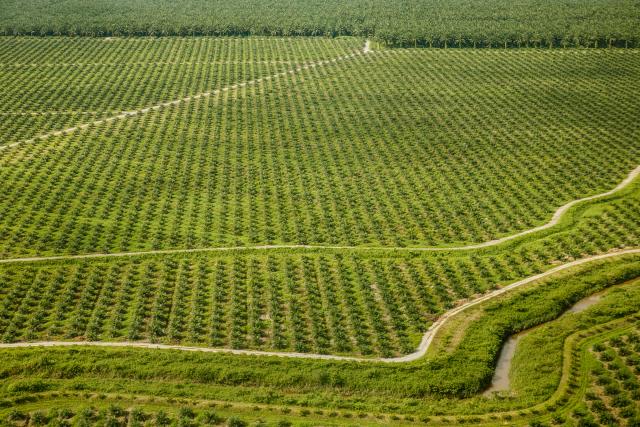
7. Pass on plastic
Plastic has infiltrated our natural world and even our diets. Bring a reusable-bag when you shop, opt for packaging-free fruit and vegetables where possible, and ask brands and retailers that continue to use plastic to find alternatives.
8. Eat what’s in season
When possible try to include seasonal produce from your local farm shop or greengrocer in your diet. As well as supporting your local economy, you might get to know local producers and get tips on how to prepare seasonal foods. You can check what’s in season with this handy calendar.
What are we doing?
We’re lobbying governments to introduce and strengthen laws to protect nature and to halt the climate emergency. We’re also working with the fishing industry, farmers and businesses throughout the production chain, to help them feed the world’s growing population sustainably.
By teaming up with Sodexo (one of the world’s largest contract caterers) we are bringing planet-friendly food to 5,000 kitchens around the world, including universities throughout the British Isles. Retailers are essential: with Tesco, we’re working together to halve the environmental impact of the average shopping basket.
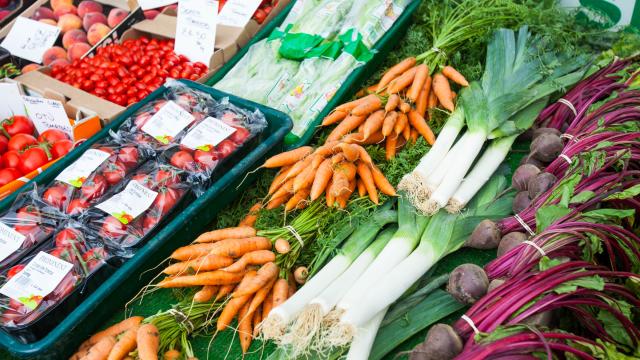
 5 ways to stop deforestation in our food
5 ways to stop deforestation in our food
 Our Selection of Healthy Sustainable Recipes
Our Selection of Healthy Sustainable Recipes
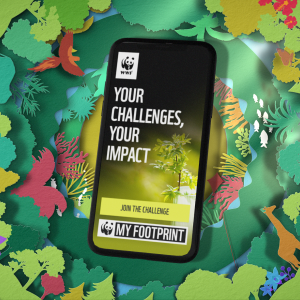 Download WWF's My Footprint app
Download WWF's My Footprint app